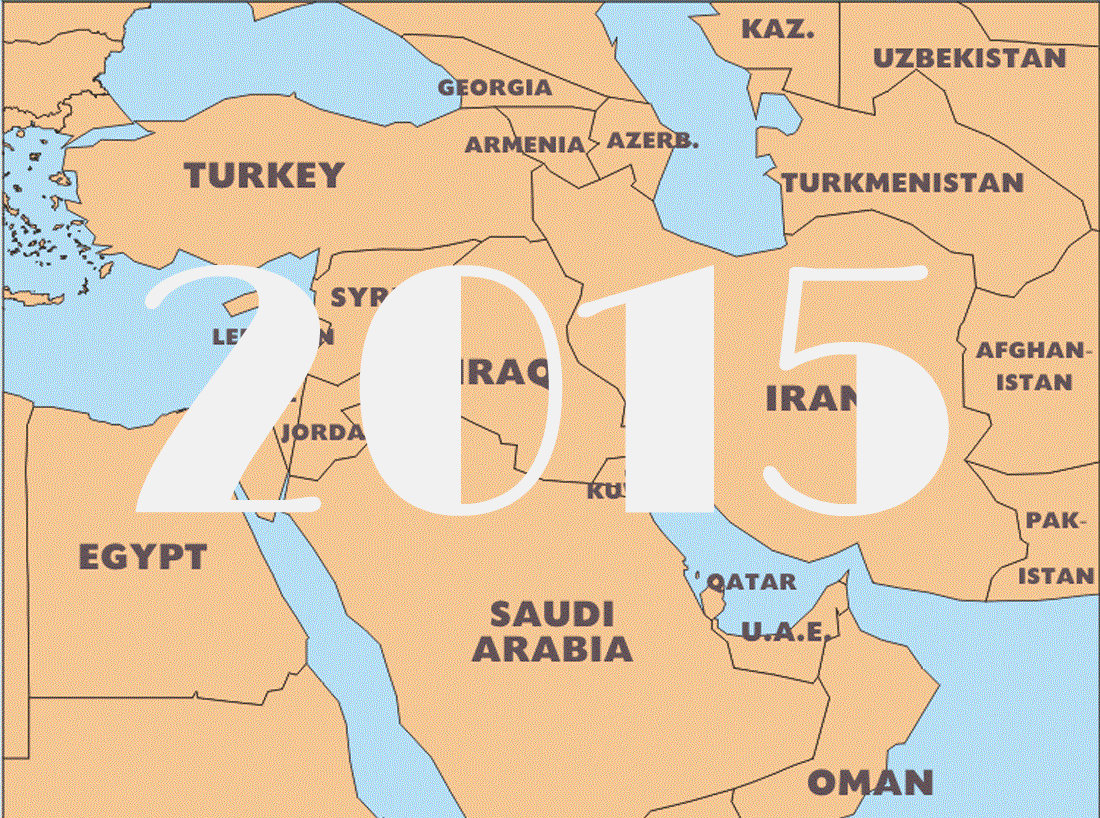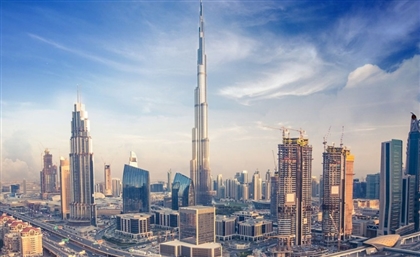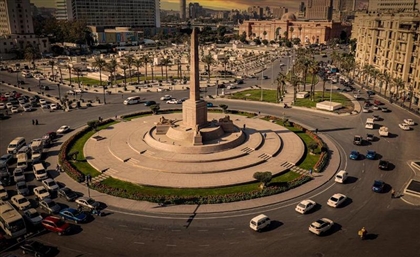The Middle East in 2015
Adam Mowafi puts his thinking cap on and paints a picture of what the region will look like come 2015, based on current events, historical evidence and educated predictions.

Confucious once said, “Study the past if you would define the future”. Utilising history and the unfolding events of the present as a foundation, I have outlined a fictitious (at least for now) future of what the social and political blueprint for the Middle East might entail. The structure of this article is written in a fallacious “present tense” dissecting the region into appropriate states, and it seeks to inspire a vision of what the future has in store for each respective nation, both internally and in the world arena. It should be noted that what ensues is a reflection of my predictions, at times specified to convey a sense of reality in what might arguably be perceived as fantastic occurrences.
Egypt
Egypt has completed a year under the rule of elected president, Adly Mansour, the dark horse in the Egyptian presidential runoff whom no one expected to run, let alone become the most palatable source for stability in the country.
Protests led by Egypt’s Muslim Brotherhood have experienced an exponential decline in the wake of intensive crackdowns that have stymied the group’s influence as a result of arrests made against their middle and senior level leadership. Consequently, many of the MB youth members have joined the Strong Egypt party who secured several seats in Egypt’s parliamentary elections.
The Sinai, though still restive, has witnessed a notable decline in fervor following a spate of major tragedies that resulted in the death of over 80 soldiers.
Egypt’s constitutional vote resulted in 85% of the population in favour, and was generally viewed as a major improvement to its 2012 document. However, rights groups are still adamant that there is much work to be done, and accordingly, they have channeled their attention to lobbying parliament over the cancellation of the arguably watered down provision on military trials dealing with extreme cases of civilians attacking military establishments.
Tourism is slowly climbing back in terms of statistics, but the economy is still heavily reliant on investments from the Gulf and aid that has been extended through to 2017.
Egypt, the GCC, and International Power-Plays
After the presidential vote, Egypt’s military has acquired a boost in pecuniary confidence as a result of unprecedented levels of US aid. The US has maintained its role as the backroom world-stage director and in its new foreign policy towards the Middle East; where its “boots-on-the-ground” policy has been replaced by bilateral agreements with Saudi Arabia, the UAE, and Israel on the one hand, and Iraq and Syria on the other. Keeping in tune with its previous role in world affairs, Egypt as assumed the role of negotiator, essentially calming Saudi Arabian fears that a Shi’ite “wave” might establish further inroads into the kingdoms of Sunni stronghold. The implications for Egypt playing the role of proxy guarantor have further facilitated an increase in its military aid influx.
The multi and bilateral agreements were prompted in the onset of US-Iran talks that resulted in a consensus where Iran agreed to eradicate its nuclear program and the US ceased its allocation of funds and training to the Syrian Rebels. The Saudis were obviously perturbed by this move, setting the stage for Egypt to offer its services as a mediator. Accordingly, Egypt also effectively served as a military deterrent to possible geographic expansions affiliated with both Syria and Iran. All sides feel this compromise is the best solution in terms of restoring relative stability in the region.
Syria
As a result of the deal between Iran and the US in 2014, Assad, with the assistance of Hezbollah, was able to quell the rebel uprising in the Damascus suburbs and gain a sweeping victory in Al-Qalamoun. This led to a razing of the rebel supply routes, allowing for the re-acquisition of Allepo before the end of summer. Following these successes, Bashar Al Assad won what is largely believed to be a rigged election, and since then, he has been investing efforts in reconstructing stringent defenses. This has been coupled with labours, largely supported by investments from Iran, targeting the rebuilding of a shattered economy.
In terms of the marginalised Kurdish population in Syria, Assad established a deal with Syrian Kurds, allowing them full autonomy in their northern provinces where they have been waging a proxy war on Assad’s behalf with the last of the rebel strongholds in the area.
Palestine
The Palestinian authorities have arrived at a tentative concord with Hamas, agreeing to hold new elections in 2015. This is arguably the direct result of the hard economic collapse that followed a complete shutdown of the tunnels between Egypt and Palestine, along with the installment of a more aggressive blockade system by Israeli security forces.
Lebanon
Lebanon experienced a large spill-over from the Syrian offensive in Al-Qalamoun that effectively led to Hezbollah’s biggest blow in terms of local support. However, under the instructions of Iran, the offensive was continued, and Hezbollah was able to reclaim some of its lost popularity.
Iraq
Iraq has and continues to experience a protracted situation of turmoil, fueled by a seemingly endless spell of suicide bombs, well into 2014.
- Previous Article I Got Banged!
- Next Article For Love Nor Money?
























